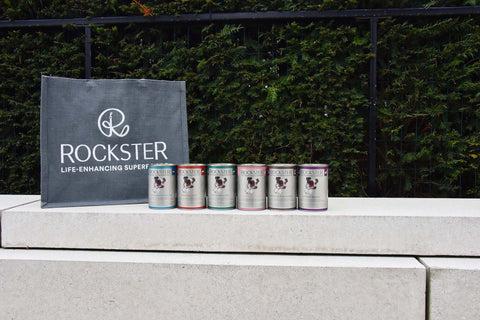
Yes we CAN! Is it really possible that a canned food could be healthier than fresh or frozen?
Nutrient levels in canned food
Contrary to some opinions, canned foods can present a viable alternative to fresh and frozen foods regarding nutrient content. Nutrient levels in foods can vary quite dramatically; factors such as source, processing and storage methods contribute to these variations. Whilst fresh food is widely considered to be the most nutritious, this is not always the case. From the point of harvest to consumption; degradation, spoilage and nutrient losses in fresh foods can be significant, due to factors such as air, light, heat and moisture. Animal produce such as meat is susceptible to spoilage, also vegetables and fruit begin to lose their cellular life and deteriorate, leading to reduced quality. Therefore, storage and processing methods ultimately influence the resulting nutrient content in the foods that we and our pets consume.
 As you can see, how fresh foods are utilised, whilst retaining maximum nutrient content can prove difficult. Freezing is the most commonly employed processing method to preserve foods, yes even freezing is technically a processing method and carries variable but minimal nutrient loss. Processing methods are widely talked about when discussing depleted nutrient content in the foods we feed our pets; with fresh, raw feeding considered by many to be the ideal. Without entirely disagreeing with this perception, we need to be more aware of the source and storage life of these fresh foods, if we want to be assured of their superior nutrient value. There are also many inaccuracies and myths about processing, which makes it difficult to assess the quality of the foods we feed our pets.
As you can see, how fresh foods are utilised, whilst retaining maximum nutrient content can prove difficult. Freezing is the most commonly employed processing method to preserve foods, yes even freezing is technically a processing method and carries variable but minimal nutrient loss. Processing methods are widely talked about when discussing depleted nutrient content in the foods we feed our pets; with fresh, raw feeding considered by many to be the ideal. Without entirely disagreeing with this perception, we need to be more aware of the source and storage life of these fresh foods, if we want to be assured of their superior nutrient value. There are also many inaccuracies and myths about processing, which makes it difficult to assess the quality of the foods we feed our pets.
On the subject of canned foods, heated for sterilisation purposes (temperature reached and processing times varying per brand and manufacture). Whilst as mentioned previously, heat can be a factor in the nutrient loss of fresh foods. However, canned, fresh ingredients (particularly for humans) are often sourced at peak time for harvest and subjected to lesser storage times before use. Sealed cans also ‘lock in’ nutrient content, limiting further loss. Due to these factors, studies have found similar or even increased (in particular cases) levels of nutrients in canned fruits and vegetables to those present in fresh and frozen foods, which have undergone considerable storage. In fact, studies have shown higher nutrient consumption amongst people consuming a larger amount of canned fruit and vegetables in their diet, than those who consume less.
Vitamin C followed by B, are the most unstable of nutrients and are more readily lost after harvest, during storage and processing. As they are water soluble they are leeched into water when heated, in canned foods these vitamins are still available in the moisture content. Certain antioxidants are not only retained but also increase during the canning process, becoming more available, most notably lycopene in tomatoes and some other carotenes in fruits and vegetables.

As in the case of Rockster products, fresh ingredients are either frozen upon harvest or often processed immediately. Ingredients are subsequently heated in sealed, air tight cans, therefore there is no further nutrient loss to oxidation, retaining nutrient content (existing after processing). It is clear when discussing processing, food degradation and nutrient loss, there is a big difference between a conventionally dry extruded pet food, to that of a wet food such as Rockster; Which contains fresh ingredients, heated to minimum permitted temperature and processing times in air-tight BPA free cans. Canned pet foods also typically contain higher levels of meat protein than extruded foods and suffer less amino acid degradation and loss.
Well-sourced (Bio and Organic) fresh foods, contain a higher level of nutrients (particularly antioxidant activity), than their regular counterparts. To retain and best assimilate such nutrients up to the point of consumption, has been proven to be both a challenge and a goal. Unless we meticulously source or grow and harvest our own fresh foods, it’s not as easy to simply presume that fresh is best, even if in its original state it certainly is. Rockster uses Bio and Organic* ingredients, with such conscientious sourcing and utilisation of ingredients carrying higher nutritional value, the ‘superfood’ label frequently attached to Rockster is warranted. Whether we are talking about fresh, frozen or processed foods, Rockster represents a viable and reliable way of delivering nutrients to our dogs.
*Bio & Organic. The Rockster Difference
Ingredients and processing method are regulated by very strict quality control regulations.
Animals used as meat source are ethically raised and fed only bio-organic food. Certified free from exposure to chemicals, antibiotics, steroids and growth hormones.
Plant sources are grown free from exposure to chemicals and pesticides.
Graphic: Nutrient loss in fresh vs preserved fruit & vegetables.

An article by Canine Wellness Practitioner Junior Hudson, in independent nutrition consultancy with Rockster Ltd
Link nội dung: https://studyenglish.edu.vn/index.php/canned-food-is-not-as-healthy-as-fresh-food-a68393.html